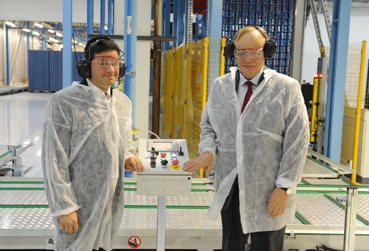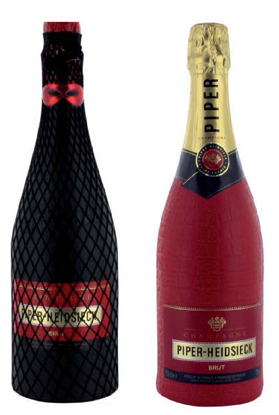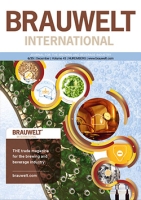Little Creatures has since the turn of the century been driving forward the craft beer movement in Australia. At the facility in a picturesque fishing port, Little Creatures uses Krones technology throughout its entire brewing operations. All the kit has been integrated in a beer hall with a restaurant. Because the beer is so popular, a second brewery is going into operation this year, this time on the south-east coast, a mere 3400 kilometres away from Fremantle, once again featuring Krones technology throughout.
With the electronically controlled, volumetric Innofill Can DVD filler KHS is launching a new series of canners to market. Like the generation of Innofill Glass fillers it is distinguished by its optimized hygienic design. Its excellent filling quality goes hand in hand with a further improved line availability, this brought about by shorter cleaning cycles and longer maintenance intervals. The system also profits from minimized water, energy, and sanitizing costs. In addition, a newly designed inert gas purging process (CAN+) is performed prior to filling. This not only cuts the amount of CO2 used but also greatly reduces the residual oxygen content in the can. The centering bell for can sealing was hygienically improved and flavor-resistant materials were used in the filling valves. The Innofill Can DVD belongs to a new generation of can fillers which is based on tried-and-tested practices and has also been greatly optimized.
For many decades now, Nigerian Breweries Plc. (NB) has been the undisputed Number One in Nigeria’s beer market. The group is expanding vigorously, but is meanwhile having to cope with fiercer competition. NB/Heineken upsizes its brewing and filling capacities firstly by acquisitions, and secondly by upgrading its existing facilities. The group’s operations include six complete lines from Krones. Its most recent investment was a new returnable-glass line at its Aba brewery in 2012, which replaced two existing smaller lines.
Filling and packaging of beverages and food is one of the last steps in the value added chain in food production. Filling and packaging plants are highly complex linked production lines with individual units achieving outputs of up to 90 000 packs per hour. Stochastic upsets and interruptions cause upsets time and again, leading to downtime of the central unit due to congestions and shortage of material. Plant operators would like to have automatic evaluation of operational data, making direct classification of causes of downtime of the central plant unit possible. Two successive collaborative research projects were carried out in order to get closer to fulfilling this objective. This article explains the project goals and the approach to find a solution. It provides a first overview of results.
Parameters for filling units to be used in acceptance test runs have been set out decades ago in DIN 8782. The definition of effective output in par. 4.3 is given as: “effective output = number of units in perfect condition outputted during the general run time by the machine per unit time on average”. Apart from the legally applicable criteria stipulated in the Pre-Packed Products Regulation, particularly the fill quantity, determination of contractual conditions (relating to what constitutes perfect condition) is a matter to be agreed by the contracting parties in the case of beverage filling units. The important points arising are covered in the following article.
Energy quotas are already in force in some Asian and Arabic countries today, and this topic will be of great importance in the future. With Airback Plus, KHS Corpoplast has developed a system which helps to reuse much more compressed air from the stretch blow molding process than was previously the case.
Brigl & Bergmeister, producer of 1-side coated paper for labels and flexible packaging has signed a cooperation agreement with Cham Paper Group. Once base paper production at the facility in Cham, Switzerland, has been shut down, B&B in Niklasdorf, Austria, will take over the production and marketing of their silicone base papers (Clay Coated Kraft paper). Cham will provide its highly specialized technical expertise. The first products will be available during the second half of 2013, giving the Niklasdorf plant an additional pillar to its successful, wet strength label papers. Following this, there are plans to make further investments in expanding capacity at Niklasdorf in 2014.
Rexam, one of the leading global beverage can makers, has opened its new can manufacturing plant in Finland on 30th January. Located in Mäntsälä in southern Finland, it is Rexam’ s first plant in the country and represents an investment of about BP 68 m over three years as part of the company’ s current capital investment plans. The new plant will employ around 100 local people.
Packaging is integrating the sense of touch into design. Sleeves are stylish packages with extravagant textures. With its "Star Opening" patent, PDC Europe helps realising sleeving ideas using highly malleable elastomer sleeves. This exclusive technique, branded "Skin Evolution", has been developed in a partnership with Eos Innovation.
The fifth part of this series of articles goes into more detail about the tasting test presented. A switch is made from tasting two beer samples to tasting three beer samples. The equations described have to be adapted and supplemented. These considerations are verified in a final tasting test and compared to the results from the previous tasting.




